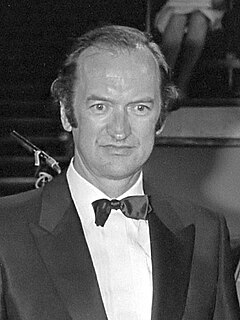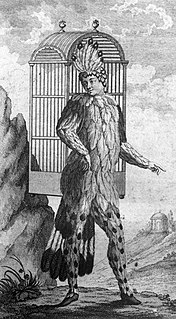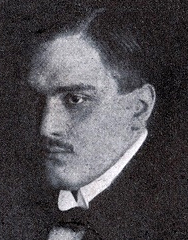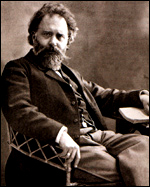
Vienna is the federal capital and largest city of Austria, and one of the nine states of Austria. Vienna is Austria's primate city, with a population of about 1.9 million, and its cultural, economic, and political centre. It is the 7th-largest city by population within city limits in the European Union. Until the beginning of the 20th century, it was the largest German-speaking city in the world, and before the splitting of the Austro-Hungarian Empire in World War I, the city had 2 million inhabitants. Today, it has the second largest number of German speakers after Berlin. Vienna is host to many major international organizations, including the United Nations and OPEC. The city is located in the eastern part of Austria and is close to the borders of the Czech Republic, Slovakia, and Hungary. These regions work together in a European Centrope border region. Along with nearby Bratislava, Vienna forms a metropolitan region with 3 million inhabitants. In 2001, the city centre was designated a UNESCO World Heritage Site. In July 2017 it was moved to the list of World Heritage in Danger.

Nikolaus Harnoncourt was an Austrian conductor, particularly known for his historically informed performances of music from the Classical era and earlier. Starting out as a classical cellist, he founded his own period instrument ensemble, Concentus Musicus Wien, in the 1950s, and became a pioneer of the Early Music movement. Around 1970, Harnoncourt started to conduct opera and concert performances, soon leading renowned international symphony orchestras, and appearing at leading concert halls, operatic venues and festivals. His repertoire then widened to include composers of the 19th and 20th centuries. In 2001 and 2003, he conducted the Vienna New Year's Concert. Harnoncourt was also the author of several books, mostly on subjects of performance history and musical aesthetics.

The Theater an der Wien is a historic theatre in Vienna located on the Left Wienzeile in the Mariahilf district. Completed in 1801, the theatre has hosted the premieres of many celebrated works of theatre, opera, and symphonic music. Since 2006, it has served primarily as an opera house, hosting its own company.

Emanuel Schikaneder, born Johann Joseph Schickeneder, was a German impresario, dramatist, actor, singer, and composer. He wrote the libretto of Wolfgang Amadeus Mozart's opera The Magic Flute and was the builder of the Theater an der Wien. Peter Branscombe called him "one of the most talented theatre men of his era".

The Vienna Symphony is an Austrian orchestra based in Vienna. Its primary concert venue is the Vienna Konzerthaus. In Vienna, the orchestra also performs at the Musikverein and at the Theater an der Wien.
Bertrand de Billy is a French conductor.

Der Graf von Luxemburg is an operetta in three acts by Franz Lehár to a German libretto by Alfred Willner, Robert Bodanzky, and Leo Stein. A Viennese take on bohemian life in Paris at the beginning of the 20th century, the story revolves around an impoverished aristocrat and a glamorous opera singer who have entered into a sham marriage without ever seeing each other and later fall in love at first sight, unaware that they are already husband and wife.

Sara Magdalena "Malena" Ernman is a Swedish opera singer. Outside the world of opera and operettas, she has also performed chansons, cabaret, jazz, and appeared in musicals, and she has declared that she is very much attracted to the attributes of variété theatre and small, intimate stage rooms. She is a member of The Royal Swedish Academy of Music. Ernman represented Sweden at the Eurovision Song Contest 2009 in Moscow, Russia.
A concert performance is a performance of a musical theater or opera in concert form, without set design or costumes, and mostly without theatrical interaction between singers.
Wiener Kammeroper is an opera theatre and opera company founded by conductor Hans Gabor. As early as 1948 he initiated the "Vienna Opera Studio" - a company without a theatre of its own. The new name of the company, "Wiener Kammeroper", reminiscent of chamber music and society plays in an intimate setting, was first used officially in 1953.

Fierrabras, D 796, is a three-act German opera with spoken dialogue written by the composer Franz Schubert in 1823, to a libretto by Joseph Kupelwieser, the general manager of the Theater am Kärntnertor. Along with the earlier Alfonso und Estrella, composed in 1822, it marks Schubert's attempt to compose grand Romantic opera in German, departing from the Singspiel tradition.
The Arnold Schoenberg Choir is a Viennese/Austrian choir which was founded 1972 by Erwin Ortner, who is still its artistic director. The choir has a high reputation both among conductors and among critics and the musical scene in general. All members of the choir have broad experience and expertise in vocal music; most of them have graduated from or are currently studying at the Vienna University of Music and Performing Arts. The choir is named after Viennese composer Arnold Schoenberg.
Thaddeus Strassberger is an American opera director and scenic designer. In 2005 he was awarded the European Opera Directing Prize by Opera Europa for his work on Opera Ireland's production of Rossini's La Cenerentola.

Flammen (Flames) is an opera in two acts and ten scenes composed by Erwin Schulhoff, his only opera. The original libretto in Czech was written by Karel Josef Beneš. The opera had its world premiere at the old National Theatre in Brno on 27 January 1932 in Czech under the title Plameny. It was not heard again until the mid-1990s, when it was performed in its German translation by Max Brod as Flammen. Its story is a surrealist retelling of the Don Juan legend with elements from the legend of the Wandering Jew, and heavily influenced by Freudian psychology. Unlike the title character in Mozart's Don Giovanni based on the same legend, Don Juan is not punished by being dragged down to Hell, but instead is condemned to live forever.
Jochen Breiholz is a German opera manager.
The following is a timeline of the history of the city of Vienna, Austria.
Christian Kostal León de Castillo is an Austrian-Mexican tenor, conceptual artist, musicologist and artistic director.

Salzburg Festival: history and repertoire, 1922-26 lists all opera productions of the Salzburg Festival in its founding years.

Elisabeth Kulman is an Austrian classical singer who has performed operatic roles in soprano, mezzo-soprano and contralto repertory. She has appeared at opera houses in Vienna and internationally. She has performed early operas such as Legrenzi's Il Giustino as well as new works, creating the role of Gora in the premiere of Reimann's Medea at the Vienna State Opera. She recorded Lieder by Mussorgsky, Bach's Christmas Oratorio with Peter Schreier and Beethoven's Missa solemnis with Nikolaus Harnoncourt. From 2015, she has focused on concert singing.

The following outline is provided as an overview of and topical guide to Vienna:














